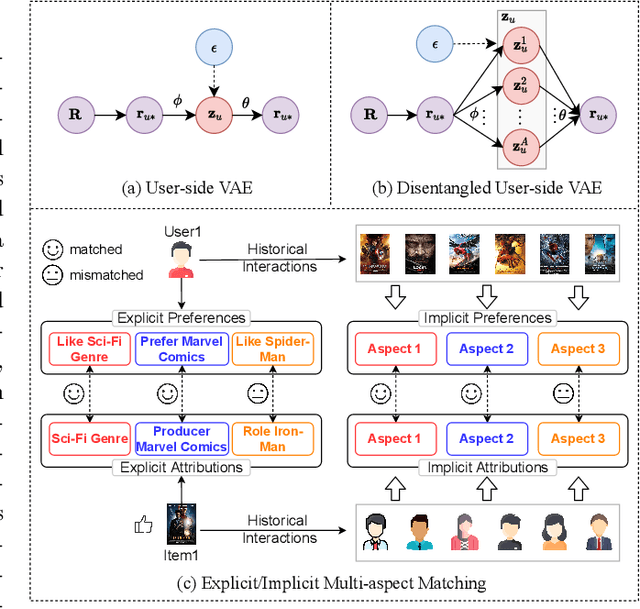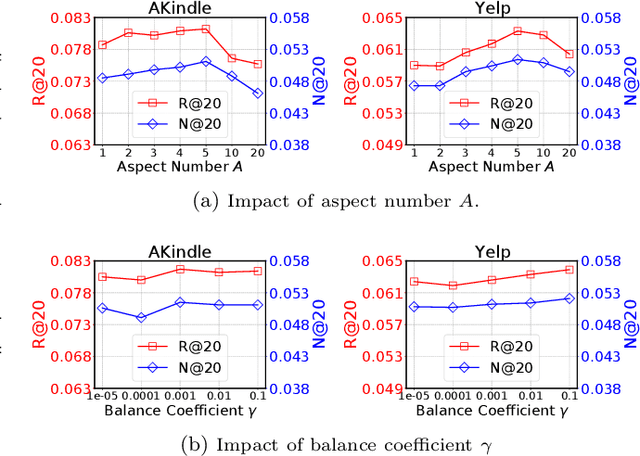DualVAE: Dual Disentangled Variational AutoEncoder for Recommendation
Paper and Code
Jan 10, 2024



Learning precise representations of users and items to fit observed interaction data is the fundamental task of collaborative filtering. Existing studies usually infer entangled representations to fit such interaction data, neglecting to model the diverse matching relationships between users and items behind their interactions, leading to limited performance and weak interpretability. To address this problem, we propose a Dual Disentangled Variational AutoEncoder (DualVAE) for collaborative recommendation, which combines disentangled representation learning with variational inference to facilitate the generation of implicit interaction data. Specifically, we first implement the disentangling concept by unifying an attention-aware dual disentanglement and disentangled variational autoencoder to infer the disentangled latent representations of users and items. Further, to encourage the correspondence and independence of disentangled representations of users and items, we design a neighborhood-enhanced representation constraint with a customized contrastive mechanism to improve the representation quality. Extensive experiments on three real-world benchmarks show that our proposed model significantly outperforms several recent state-of-the-art baselines. Further empirical experimental results also illustrate the interpretability of the disentangled representations learned by DualVAE.
 Add to Chrome
Add to Chrome Add to Firefox
Add to Firefox Add to Edge
Add to Edge